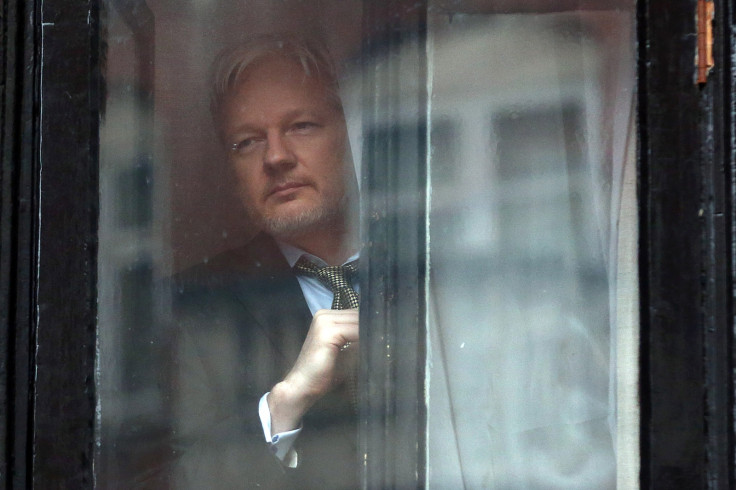Julian Assange could be 'cordially' asked to leave the Ecuadorian embassy in London
Ecuadorian presidential candidate Guillermo Lasso said he would evict the Wikileaks founder if elected.
Julian Assange's residency at the Ecuadorian embassy in London would be coming to an end should Ecuadorian presidential hopeful Guillermo Lasso win the election next week.
Lasso made the remarks in an interview to the Guardian on 9 February. "The Ecuadorian people have been paying a cost that we should not have to bear," he said during an interview in Quito. "We will cordially ask Señor Assange to leave within 30 days of assuming a mandate."
The right-wing candidate of the Creo-Suma alliance is running behind the ruling socialist party candidate Lenin Moreno in the first round of the vote on 19 February.
Moreno served as vice-president under current president Rafael Correa between 2007 and 2013. He is a well-known activists for the rights of people with disability as he has been in a wheelchair since he was shot in a robbery in 1998. He has been leading the polls since November, but Lasso, who is a former banker, could still stand a chance of winning should the two face each other in a run-off.
The Correa government has been supporting Assange's request of political asylum since 2012 when the Australian sought refuge in the country's embassy to avoid extradition to Sweden, where he is accused of rape.
But, according to the Guardian, politicians and diplomats are increasingly weary of the situation and occasional tensions have surfaced. Internet access to the Wikileaks founder was temporarily cut during the US presidential election, when his website published leaked email about the Democratic Party and its candidate Hillary Clinton. "We wanted to be clear that our sovereign space was not being used for interference in the election of another country," the foreign minister, Guillaume Long told the British newspaper.
He added that there is a human cost to the situation and that the embassy staff has been "through a lot". "This is probably the most watched embassy on the planet," he said. According to Long, the staff tried to give Assange, who recently said he had not seen the sunlight in four years, as much comfort as possible, but the building does not have outside areas and he occupies a room on the first floor, where there is not much light.

Regardless of Ecuador's decision, Assange himself may decide to leave of his own free will. While the only extradition request for Assange is from Sweden, he has refused to go to the Scandinavian country for fear he would be handed over to the US, where the Department of Justice (DoJ) has a case open against Wikileaks for the disclosure of thousands of confidential government documents.
Assange and his team contested the legality of the DoJ investigation, but agreed to US extradition on the condition that Wikileaks whistleblower Chelsea Manning, who was serving a 35-year prison sentence, was released. Former President Barack Obama commuted Manning's sentence on 17 January and the former US soldier is due for release in May.
Assange has since been vague as to how he will proceed. Speaking to British channel ITV, he said he may consider going to the US to help close the DoJ investigation once and for all: "If to settle the matter it requires going to the United States, where certain circumstances and where my rights are protected then that's something we want to discuss, but the ball is in the DoJ court."
In an interview to Australian television, Assange was a little clearer about his intentions. "We had a major strategic victory in liberating Chelsea Manning – the most significant alleged whistleblower in the last 10 years" he said "But of course saying I'm willing to accept extradition doesn't mean I'm saying, I'm willing to be a complete idiot and throw all my lawyers away."
© Copyright IBTimes 2025. All rights reserved.






















